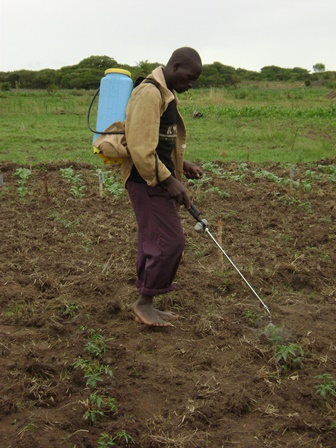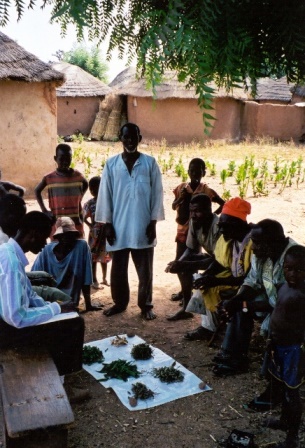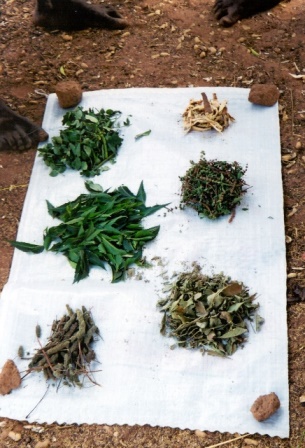Background
Most African farmers depend upon their agricultural produce for their livelihoods so food security is their most important consideration along with factors that limit production of sufficient food for their families. However, adequate yields can be secured through improved crop management and food storage, and where surpluses can be produced, these can generate additional income and a potential route for African farmers to improve their livelihoods and raise themselves out of poverty. Food production and storage are limited by numerous constraints but insect pests are arguably the most important since they are a constraint over which even the poorest farmers can have some direct control with low cost interventions. If left unmanaged, insects will invariably cause severe damage.

Commercial insecticides are usually effective but they have limited distribution in rural areas. Worse still they are often adulterated (diluted to ineffective concentrations by unscrupulous traders) or applied at inappropriate application rates due to illiteracy or poor labelling and increasingly are ineffective owing to the wide occurrence and rapid evolution of pesticides resistance. Health and safety is also a serious issue since insecticides are typically applied with no protective clothing; there is no mechanism to ensure food safety for consumers, and little concern for chronic effects of exposure. The environmental impact for wildlife, crop pollinators and natural enemies is also severe while the cost of correctly applied synthetics can be prohibitive.
Farmer surveys about synthetic insecticides conducted in Africa highlight all these problems which are well understood by farmers and have led to many avoiding commercial products altogether and looking to alternatives. Intervention is necessary since severe losses in most field crops and in storage is otherwise guaranteed. A recent study estimated that for cereal grains alone, post-harvest losses reached nearly US$4 billion annually in SSA, 13.5% of the estimated US$27 billion value of cereal production. With stored grain losses estimated to be similar in quantities lost, this is arguably the most important target for food security and agricultural development in Africa. Livestock continue to endure severe morbidity and poor productivity due to ectoparasites and fly-transmitted diseases, and in many locations across the target area for this project where traditional food crops cannot easily be grown, livestock provide an alternative agricultural income for farmers. Pesticidal plants or botanical insecticides are an effective alternative to synthetic chemicals for the control of arthropod pests. Their promotion, particularly with optimised application protocols, improved access to materials through propagation using established techniques and and cultivation and effective extension services would have enormous impact on pest management and ultimately food security.
Plant materials are known by farmers to be environmentally benign, safer and cost-effective compared to synthetic pesticides1, as well as being difficult to adulterate when produced or harvested by farmers, themselves. Most persuasive of all is that their cost to farmers is substantially lower than synthetic products and can be calculated simply in terms of time to harvest and process. Generations of farmers have used plants in this way, making the technology familiar, trusted and acceptable, but their priority in agricultural policy is low. This is due to knowledge gaps or may be because there are few commercial incentives or revenues to drive policy and uptake as is the case with commercial synthetic pesticides. Their successful commercialisation has been realised through only a handful of products including Pyrethrum. However, owing to the cost of registration, even Pyrethrum products in countries where it is produced such as Kenya are registered for relatively few domestic uses, such as against mosquitoes and pets and are not widely used in their horticulture industry despite Pyrethrum being considered acceptable under organic regulations.


What is clear is that plants are effective, low cost, and provide an effective tool for managing insect pests, especially for small holder farmers. However, the realisation of their full potential, especially for the poorest farmers, is constrained by inadequate product quality evaluation and development, which, if improved, will increase the reliable options available to farmers. This project aims to address this directly through the propagation of indigenous and exotic pesticidal plant species and by improving science technology and innovation for commercially viable botanical insecticides such as Pyrethrum.

